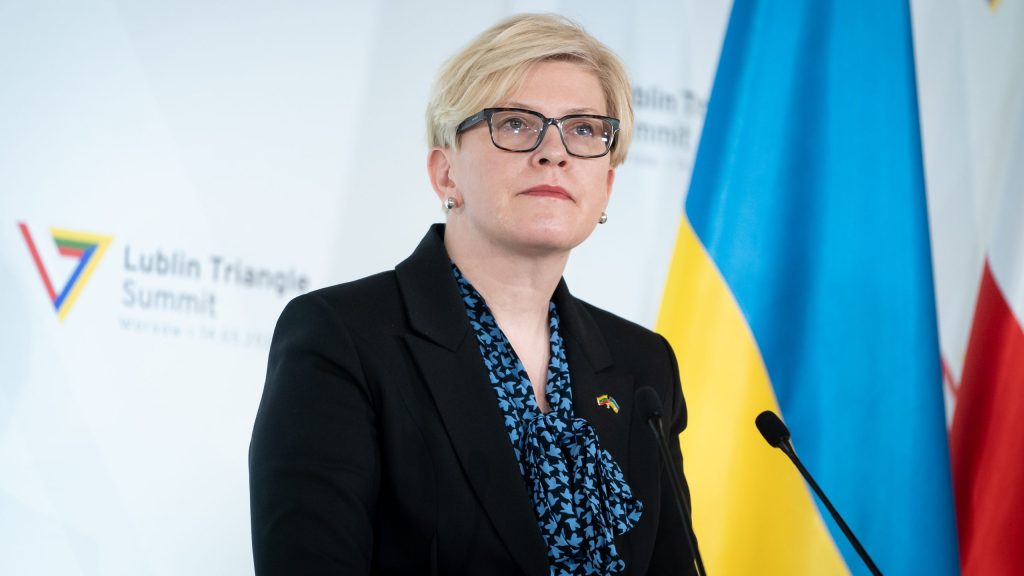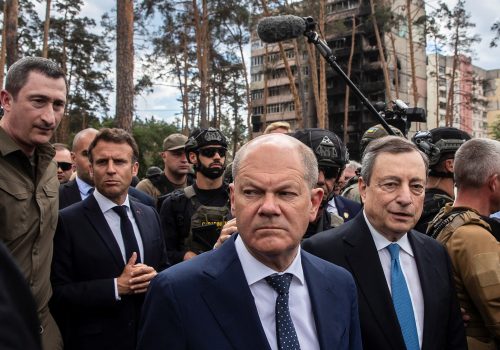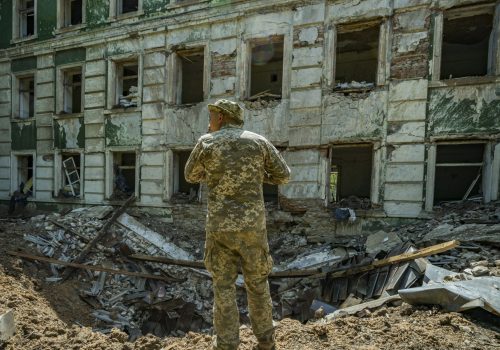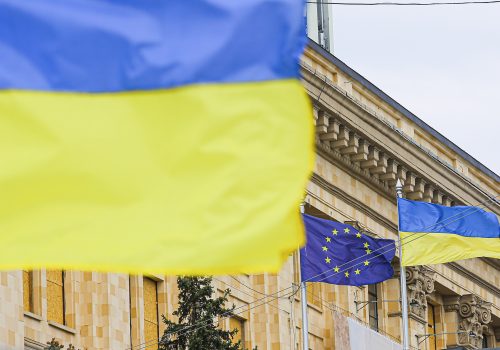As Europe reels from Russia’s war against Ukraine, Lithuania—a Baltic country that’s intimately familiar with Kremlin domination—has emerged as a clear leader in responding to its aggression.
For years, said Prime Minister Ingrida Šimonytė at an exclusive Atlantic Council Front Page event Thursday, her country has warned the West about the security dangers posed by a revanchist Russia—which she says “keeps on proving we were right” about seeing Moscow as a threat.
“When people sometimes say, ‘Look, you were right—we should have been listening to you,’ I feel no happiness about it,” she told moderator Evelyn Farkas, a former US deputy assistant secretary of defense and the executive director of the McCain Institute.
Šimonytė described how her country of just 2.7 million, which has also boosted Taiwan and the Belarusian opposition, responds to the geopolitical challenges presented by Russia and other problematic states. Here are some more highlights from the conversation:
UP CLOSE AND PERSONAL
- Šimonytė credits her country’s speedy integration into the global economy for its success in transitioning from communism to liberal democracy. But that’s not a universal recipe for democratization—something Lithuania’s proximity to Russia has helped reveal. “We actually lost our belief that Russia is willing to become part of this global economy in good faith,” she said.
- Through its weaponization of energy, among other commodities, the Kremlin has shown that global economic interconnectedness is bound to “backfire if we are not smart enough to think of alternatives,” Šimonytė added.
- Russia (or China, for that matter) isn’t interested in “becoming part of the global geopolitical infrastructure” in a constructive way. “Those regimes are actually using and, I would say, abusing the rules-based world that we live in,” she said. (China has recently sought to pressure and punish Lithuania for strengthening ties with Taiwan.)
SECURITY FIRST
- Šimonytė said her country was quick to splurge on security and defense in the wake of Russia’s annexation of Crimea in 2014, as well as cry foul about Moscow’s troop buildup ahead of its February invasion of Ukraine. She hopes the Alliance will use its upcoming summit in Madrid to rethink how to send “a very clear signal that NATO is absolutely serious about its members.”
- When it comes to Sweden and Finland’s potential membership in the Alliance, Šimonytė said their accession would be “a game changer” that will effectively transform the security situation in the Baltics. “And this is very important.”
- Regarding Ukraine, Šimonytė urged Kyiv’s allies and partners against seeking any outcome that isn’t acceptable to Kyiv itself—while also warning her European counterparts that Russian President Vladimir Putin will seek to exploit political and economic pressures in their home countries to force a compromise. “He’s trying to turn around the debate, and we can see that very clearly.”
ACT NOW
- Šimonytė called for “a coalition of the willing” to help unblock Ukraine’s Black Sea ports and secure shipping routes in an attempt to avert an impending global food crisis. She described that as “a doable thing.”
- In her own backyard, she urged military planners to draw lessons from Russia’s invasion of Ukraine to boost air-defense capabilities, in particular. Among those lessons? “It is so easy to sit in your own territory… and bomb civil infrastructure and cities and hospitals and whatever you are not supposed to bomb under the rules of war.”
Dan Peleschuk is the editor of New Atlanticist.
Further reading
Thu, Jun 16, 2022
How NATO can stick together and keep the pressure on Russia, according to four former Alliance chiefs
New Atlanticist By Katherine Golden
Four former NATO chiefs gathered at the Atlantic Council to weigh in on the Alliance's response to the war in Ukraine, enlargement, and the next plays in its playbook.
Thu, Jun 9, 2022
Proxy war or not, Ukraine shows why moral hazards matter
New Atlanticist By C. Anthony Pfaff
Whether NATO and Ukraine are proxy partners matters less than whether they can manage the risks associated with their relationship.
Thu, May 26, 2022
The buzz in Europe’s halls of power about Ukraine’s EU bid
Experts react By
Our Europe experts break down what to expect from the European Council's special meeting on issues related to the war in Ukraine.
Image: Lithuanian Prime Minister Ingrida Simonyte attends the Lublin Triangle Summit in Warsaw, Poland, on March 14, 2022. Photo by Mateusz Wlodarczyk/NurPhoto/REUTERS



